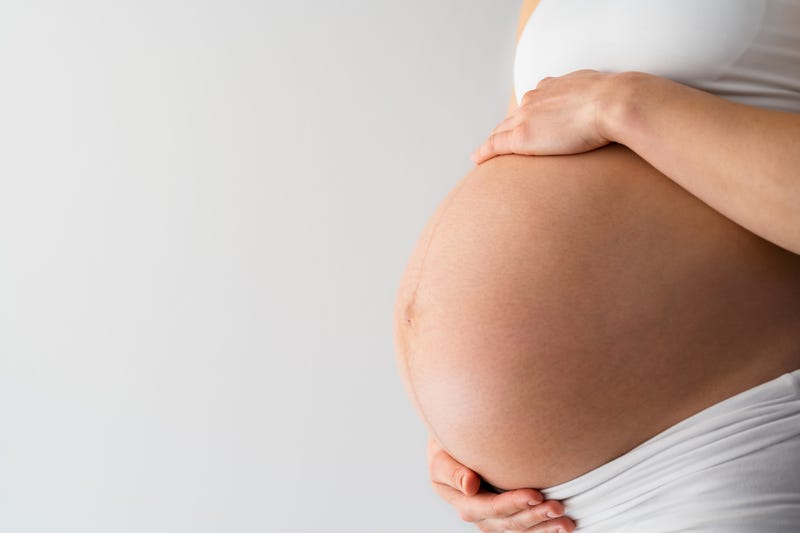
“I mean just hearing the cry at first was just, you know, mind blowing,” said a woman identified as Mallory. She is the first uterine donor recipient to give birth to a baby outside of a clinical trial.
Her journey began at age 17, when Mallory was diagnosed with Mayer-Rokitansky-Küster-Hauser syndrome, or congenital absence of a uterus.
Doctors told her she would never be able to biologically carry a child.
“I had come to terms with knowing that, OK, I won’t be able to carry my own children; but for me, it always felt like something that was lacking,” Mallory said, according to the University of Alabama at Birmingham.
Before she embarked on the uterus transplant journey, Mallory and her husband Nick reached out to her sister to be a surrogate for her first child, a daughter. As they considered expanding their family, she discovered the possibility of uterine donation.
Doctors in Sweden pioneered uterine transplantation procedures and in 2014, the first child was born to a mother who had a uterine transplant at University of Gothenburg. In the U.S., the Cleveland Clinic expanded on these breakthroughs and the first child born to a U.S. uterine donor recipient was delivered in 2016.
According to the UAB, women who were born without a uterus, who have a non-functioning uterus or who have had their uterus removed may be eligible for the program. The first step in the process for recipients is a medical evaluation, followed by procedures to create embryos. Then, the uterine transplant is performed, followed by an embryo transfer. After a cesarean delivery, the uterus is removed.
“Even through some of the tough stuff, I really embraced pregnancy as I knew it would be the only time I was going to be able to do it, and I knew how lucky I was to be able to experience it,” Mallory said. “Sharing that journey with our daughter was so special, too, with her being able to feel my belly. I just had so much gratitude to experience this.”
Mallory received her uterus from a deceased donor through Legacy of Hope. She relocated with her family to Birmingham in order to go through the 18-month process, which requires an “extensive level of medical oversight and clinical care,” that involves the departments of Surgery, Obstetrics & Gynecology, Radiology, Pathology, Medicine, Anesthesiology, and Pediatrics. Overall, more than 50 medical providers were part of the process.
By May of this year, Mallory had given birth to a son.
“The birth of UAB’s first uterus transplant program baby is an incredible milestone not just for the patient and the field, but for our multidisciplinary team here at UAB, as this marks our ability as an institution to offer another option for patients who are experiencing uterine factor infertility,” explained Dr. Paige Porrett inaugural director for Vascularized Composite Allotransplantation in UAB’s Comprehensive Transplant Institute and associate professor in the Marnix E. Heersink School of Medicine Department of Surgery.
So far, UAB’s uterine transplant program is one of just four in the U.S. and it is the first to offer the procedure outside of a clinical trial. Other programs include the Cleveland Clinic program, the program at UPenn and the Baylor Scott & White Health program.
According to UAB medicine, “uterine factor infertility may affect as many as 5% of reproductive-age women worldwide and was a previously irreversible form of female infertility.”
Although only around 100 uterus transplants have been performed worldwide, success stories such as Mallory’s show there is now more hope for women with the condition.
“This birth is evidence that reassures us that this emerging technology — this innovative therapy — that’s been needed for so long really, truly works,” Porrett said. “Within the whole process of uterus transplantation, there are multiple milestones along the way, and you don’t reach the second milestone until you’ve cleared the first. Although I’m extremely optimistic about uterus transplantation and its recognized multitude of benefits, it is a complex process, and the ultimate goal is a successful, healthy live birth; it’s this milestone that counts above all else. Mallory and Nick achieved this, and I just can’t be excited enough for them.”
There are also more potential success stories on the horizon in Alabama. There, the UAB team is currently caring for multiple uterine transplant patients.


